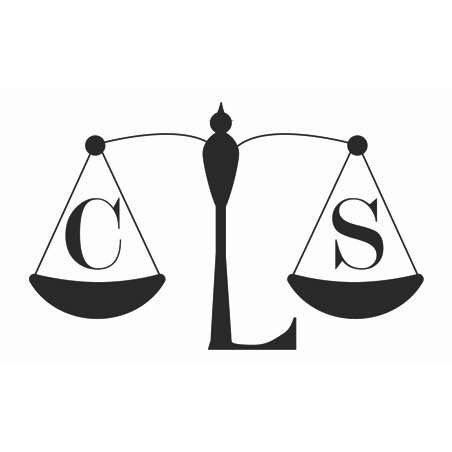Best Sanctions & Export Controls Lawyers in Sanaa
Share your needs with us, get contacted by law firms.
Free. Takes 2 min.
List of the best lawyers in Sanaa, Yemen
About Sanctions & Export Controls Law in Sanaa, Yemen
Sanctions and export controls are sets of legal restrictions imposed by governments or international organizations to regulate the movement of goods, technology, and financial resources. In Sanaa, Yemen, these laws are especially significant due to ongoing conflict, humanitarian crises, and the involvement of multiple international actors. Sanctions may be imposed by the United Nations, the United States, the European Union, or Yemen’s own authorities, and often target trade, arms, or financial interactions to influence political outcomes or promote security. Export control regulations are intended to prevent the proliferation of sensitive technologies or goods that might undermine national or international security.
Why You May Need a Lawyer
Navigating sanctions and export controls in Sanaa can be complex and risky. You may need legal assistance in the following situations:
- If you run a business that imports or exports goods to or from Yemen
- If your company deals with foreign entities subject to international sanctions
- If you are questioned by customs or regulatory authorities about shipments or transactions
- If your assets or bank accounts have been frozen
- If you are accused of violating trade or export control laws
- If you need to apply for licenses or permits to export or import restricted goods
- If you face partnership or supply chain disruptions due to new sanctions regulations
- If you need advice on compliance programs to prevent accidental breaches of sanctions
In each of these cases, a lawyer can help protect your interests, guide you on compliance strategies, and represent you in interactions with government agencies or in court.
Local Laws Overview
Sanctions and export controls in Sanaa are governed by a combination of Yemeni laws and international regulations. Key local aspects include:
- Enforcement of UN Security Council resolutions, which can restrict trade in arms, fuel, luxury goods, and other categories
- Government export licensing requirements, particularly for sensitive goods such as pharmaceuticals, chemicals, and certain technologies
- Customs regulations that mandate disclosure and documentation for imports and exports, including certificates of origin
- Laws prohibiting trade with individuals or entities identified on sanctioned person lists, such as those accused of terrorism, arms smuggling, or human rights abuses
- Asset freeze measures on those subject to international sanctions
- Potential penalties for violations, which can include hefty fines, loss of business licenses, and even criminal prosecution
Compliance can be challenging because Yemen’s regulatory environment is influenced both by domestic agencies and by international mandates. Political changes and ongoing conflict can also affect enforcement and interpretation of these laws.
Frequently Asked Questions
What are sanctions and why do they apply in Yemen?
Sanctions are legal restrictions imposed to influence the behavior of states or individuals. In Yemen, they are often applied to address conflict, protect civilians, and promote diplomacy.
Who can impose sanctions affecting Sanaa?
Sanctions may be imposed by the Yemeni government, the United Nations, the European Union, the United States, or other international bodies.
What are export controls?
Export controls are regulations that restrict or monitor the transfer of certain goods, technologies, or services out of Yemen, especially those that could impact national security.
Which products are typically subject to export controls in Yemen?
Arms, military equipment, dual-use technologies, chemicals, pharmaceuticals, and luxury items may be subject to export controls, depending on local and international regulations.
Can I import goods into Sanaa without restrictions?
No, importing some goods requires permits and can be restricted if the items are subject to international or local sanctions or controls.
What happens if I violate sanctions or export control laws?
Violations can result in fines, seizure of goods, loss of business licenses, litigation, and even criminal charges.
How can I find out if a person or company is sanctioned?
Lists of sanctioned individuals and entities are maintained by international bodies such as the United Nations and should be checked before engaging in cross-border transactions.
Do humanitarian organizations need to comply with sanctions in Yemen?
Yes, even humanitarian organizations must comply, but there may be specific licenses or exceptions available for life-saving aid.
How do I apply for an export license in Yemen?
Licenses are typically issued by relevant government ministries, such as the Ministry of Industry and Trade or the Ministry of Interior, depending on the goods in question.
Should I consult a lawyer before doing business with foreign partners?
Yes, legal counsel can help you assess risks, comply with relevant laws, and avoid accidental breaches of sanctions or export controls.
Additional Resources
If you need more information or support regarding sanctions and export controls in Sanaa, consider reaching out to the following:
- The Ministry of Industry and Trade - for questions on export licensing and permits
- The Ministry of Interior - for regulations concerning controlled substances and security-sensitive items
- Yemeni Customs Authority - for import and export processing and documentation
- Local chambers of commerce - for business compliance guidance
- International organizations like the United Nations - for updates on international sanctions
- Qualified local legal practitioners specializing in trade and sanctions law
Next Steps
If you believe you may be affected by sanctions or export controls in Sanaa:
- Identify the specific goods, transactions, or relationships that may be subject to regulation
- Check for applicable sanctions lists or export control restrictions using official government or international sources
- Contact the relevant governmental ministry or authority for clarification and documentation requirements
- Seek legal advice from a specialist attorney with experience in sanctions and export controls law in Yemen
- Implement internal compliance systems or training for staff to mitigate risk of violations
Taking these actions can help you avoid unintentional breaches, safeguard your business interests, and ensure compliance with the law. If in doubt, always consult a qualified legal professional with experience in sanctions and export controls in Sanaa, Yemen.
Lawzana helps you find the best lawyers and law firms in Sanaa through a curated and pre-screened list of qualified legal professionals. Our platform offers rankings and detailed profiles of attorneys and law firms, allowing you to compare based on practice areas, including Sanctions & Export Controls, experience, and client feedback.
Each profile includes a description of the firm's areas of practice, client reviews, team members and partners, year of establishment, spoken languages, office locations, contact information, social media presence, and any published articles or resources. Most firms on our platform speak English and are experienced in both local and international legal matters.
Get a quote from top-rated law firms in Sanaa, Yemen — quickly, securely, and without unnecessary hassle.
Disclaimer:
The information provided on this page is for general informational purposes only and does not constitute legal advice. While we strive to ensure the accuracy and relevance of the content, legal information may change over time, and interpretations of the law can vary. You should always consult with a qualified legal professional for advice specific to your situation.
We disclaim all liability for actions taken or not taken based on the content of this page. If you believe any information is incorrect or outdated, please contact us, and we will review and update it where appropriate.









